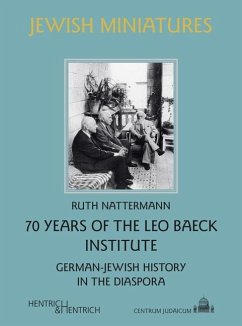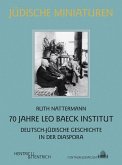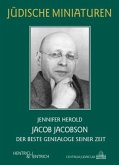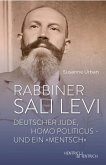Founded in 1955, the Leo Baeck Institute (LBI) has become the foremost institution for researching and documenting the history and culture of German-speaking Jewry. Among its founders were leading German-Jewish scholars who had survived the Shoah. They named the institute in honor of the esteemed rabbi Leo Baeck. On the occasion of its seventieth anniversary in May 2025, this book traces the LBI's history from its inception to the present day, highlighting the individuals and ideas that have shaped its historiography, institutional transformations, and academic achievements over the past seven decades. Once a memorial community of German-Jewish scholars in exile, the LBI has grown into a global institution dedicated to preserving and advancing the study of German-Jewish history and culture.
Bitte wählen Sie Ihr Anliegen aus.
Rechnungen
Retourenschein anfordern
Bestellstatus
Storno








